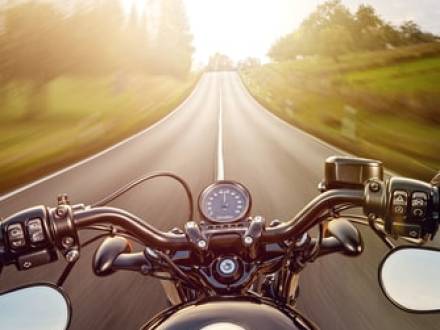Is a CT Motorcycle DUI the Same as a Passenger Vehicle DUI?
 About 30 percent of all traffic crash fatalities in the United States involve an impaired driver. DUI is a serious matter across the U.S. and in Connecticut. Unfortunately, as is the case with many issues, in an effort to stop drunk driving, the police and prosecutors have become overzealous in some instances. A driver may end up with a DUI because he or she has medical issues that prevented the successful completion of field sobriety tests or a breathalyzer test.
About 30 percent of all traffic crash fatalities in the United States involve an impaired driver. DUI is a serious matter across the U.S. and in Connecticut. Unfortunately, as is the case with many issues, in an effort to stop drunk driving, the police and prosecutors have become overzealous in some instances. A driver may end up with a DUI because he or she has medical issues that prevented the successful completion of field sobriety tests or a breathalyzer test.
If you wonder whether motorcyclists can be charged with DUI, the answer is "absolutely." That said, a much lower percentage of motorcyclists are actually charged with DUI when compared to drivers. The reasons for this could be that riding a motorcycle requires specific skills, concentration, and awareness, which are all qualities that can be significantly compromised by alcohol or drugs. A severely impaired motorcyclist would be unable to ride without almost immediately tipping over, making motorcycles at least somewhat self-limiting for intoxicated riders.
Another reason there are fewer motorcyclist DUI arrests could be because many motorcycles can easily outrun a police cruiser, finding a place to hide and avoiding an arrest. Motorcyclists do get arrested for DUI, and when they do, they are subject to the same DUI laws as drivers. If you are a motorcyclist charged with DUI, it is important that you speak to a knowledgeable Stamford, CT DUI attorney as quickly as possible to ensure your future is protected to the extent possible.
Motorcycle Laws in Connecticut
Bikes with engines smaller than 50cc that cannot travel faster than 30 mph only require the owner to have a driver’s license. Two-wheeled motor-driven vehicles with an engine larger than 50cc that can travel faster than 30 mph require registration of the vehicle and insurance. A motorcycle endorsement requires a Connecticut driver’s license and a completed DMV-approved safety course.
The motorcyclist must complete a Form R-229 and pay for the knowledge and vision test. Unless the motorcycle has a windscreen, motorcyclists are required to have eye protection, and those under 21 must wear a helmet. Lane-splitting is illegal in Connecticut, and no more than two motorcycles can occupy a single lane.
Is a Motorcycle DUI the Same as a Driver DUI?
A motorcycle is classified as a motor vehicle, which means Connecticut DUI laws apply to motorcyclists in the same way they do to drivers of cars and trucks. A motorcyclist who commits a driving error, like running a stop sign, could be pulled over and asked to perform field sobriety and breathalyzer tests.
If the officer believes the motorcyclist is impaired and the breathalyzer test is at 0.08 percent or higher, he or she will be arrested and charged with DUI. Like any driver, the motorcyclist now faces license suspension and a criminal DUI case. Motorcyclists who fail the breath test or refuse to take a breath test may have their license immediately suspended.
Suspension for refusal of a breath test is longer than the suspension for a very high BAC level. Generally, a first-offense DUI will result in a license suspension of up to one year. Other penalties for a first-time DUI include potential jail time of up to six months, with a 48-hour mandatory minimum, or a suspended sentence with 100 hours of community service.
Fines can be as high as $1,000. Collateral consequences include much higher insurance rates once the motorcyclist regains his or her driver’s license, difficulty obtaining employment, and the social stigma of a DUI conviction. Those with a DCL or professional license may suffer serious repercussions because of the DUI conviction, and the financial impact can be significant.
Contact a Fairfield County, CT DUI Lawyer
If you are facing DUI charges, whether from riding a motorcycle or driving a vehicle, it is extremely important that you secure legal representation. An experience Stamford, CT DUI attorney from Law Offices of Daniel P. Weiner can build a solid defense on your behalf that could result in a plea deal that lowers the charges from DUI to reckless driving or a not guilty verdict. Connecticut also has a diversionary program for first-time offenders that you may qualify for. Call 203-348-5846 to schedule your free consultation.







